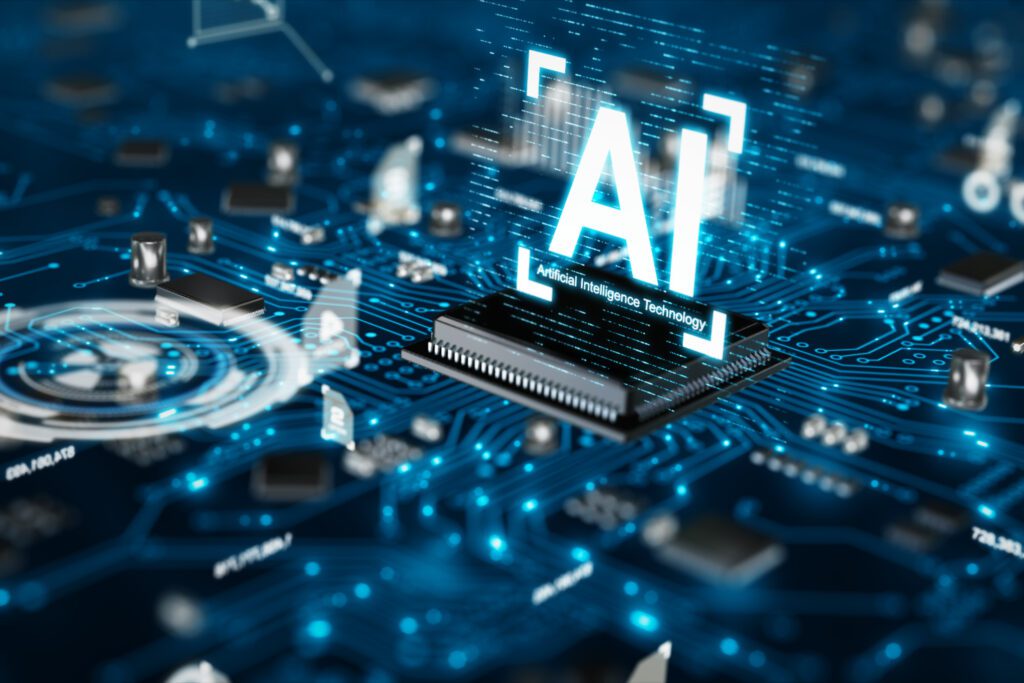In an era where AI and its impact on B2B marketing is constantly evolving, marketers may feel inclined to always adopt the newest and brightest tools to add to their martech stack.
While you can take this approach, it’s important to not abandon the tools already at your disposal and their existing AI capabilities. The tools in your martech stack are dynamic, adaptable, and equipped with progressive AI-powered software that you can use to elevate your marketing strategies.
RELATED POST: Do You Really Need That Piece of Martech?
Martech Stack Tools and AI Today
A martech stack is a set of software, platforms or miscellaneous technology tools that B2B marketers use to build, execute, and manage marketing activities. Instead of being a single point solution, your martech stack is usually made up of multiple solutions that can be in-house systems, free, or purchased software.
The typical components of an average martech stack include a data integration tool, CRMs, digital asset management, web analytics, data enrichment, advertising, social media management, and SEO tools.
This marketing technology landscape has become vast as it’s expanded and developed over the last few years. And the introduction of AI tools and innovations might make marketers think a new tool is soon to be added into their current martech stack, but that doesn’t necessarily have to be the case.
Odds are, the tools that you have in your martech stack at this very moment are more capable than you originally thought. If you’re wanting to integrate more AI-powered features into your marketing campaigns, you don’t have to look very far. Your own CRM, marketing tools, or free sites and resources possess AI functionality that can elevate your entire marketing strategy.
Your martech stack supports your marketing operation from beginning to end. Your access to accurate customer data and insight, process automation, and increasing overall marketing efficiency are huge benefits to having a strong martech stack. Capitalize on your current stack and marketing tools even more by tapping into the AI-powered features that are already included.
7 Best Martech Tools with AI Functionality
Below are software, tools, and sites that can be found in the typical martech stack of a B2B marketer. Apart from their core features, they all also have a degree of AI functionality that can aid the evolution of your marketing strategizing and keep pace with the B2B market as a whole.
HubSpot Marketing Hub
HubSpot is a one-stop shop marketing, sales, and service platform that uses AI tools to automate marketing processes, improve lead generation, and optimize customer experiences. It’s a popular CRM tool for marketers as well.
One of their specific applications is the HubSpot Marketing Hub. This application uses AI-power technology to score leads, create personalized content, run email marketing campaigns, and track lead nurturing. The platform also includes HubSpot’s machine learning algorithm, which analyzes data to help businesses optimize their marketing strategies.
Salesforce Marketing Cloud
Salesforce Marketing Cloud is a cloud-based digital marketing automation and analytics platform that includes AI-powered tools for both personalization and segmentation. The platform specifically uses an AI feature called Salesforce Einstein. Einstein can integrate into several Marketing Cloud applications, including Journey Builder and Advertising Studio. The AI-platform
CRM platform aids B2B marketers by automating their marketing campaigns, analyzing live customer data, and identifying new marketing leads.
Adobe Experience Cloud
Adobe Experience Cloud, which was once Adobe Marketing Cloud, is a suite of cloud-based digital marketing applications from Adobe Inc. Adobe’s AI and machine learning technology is named Adobe Sensei. Sensei is integrated into many of the stack’s cloud applications. AI-powered features transform your datasets into actionable insights and quickly creates AI-generated content and workflow automation. It also introduces patented data privacy tools and major content scalability. This results in B2B marketers achieving ROI quicker.
Google Analytics
Google Analytics is an extremely popular web analytics and SEO tool that helps marketers to measure website traffic as well as user behavior online. Google Analytics’ current version also includes AI-powered features such as automated insights, predictive analytics, and machine learning models for audience segmentation. This way you’re not only getting immediate and accurate data from your target audience, but it’s also easily digestible for marketers.
IBM Watson Marketing
IBM Watson Marketing is another suite of marketing automation and customer engagement software and applications that marketers have to customize and layer the correct data, content, and AI technology. IBM Watson Marketing uses its AI functionality to ultimately better understand and then anticipate the wants and needs of your customers. The IBM platform offers this AI-powered assistant to help build smarter campaigns from the ground up.
Omnisend
Omnisend is an automation tool that allows marketers to engage with leads or customers through multiple channels including SMS, email, social media and web push notifications. It is AI-powered and helps marketers with lead management, sales prospecting, and even follow up. Omnisend’s AI features strive to ultimately save marketers time by using these pre-made automation tools.
Mailchimp
Mailchimp is a marketing automation and email marketing platform with both free and paid tiers. You can use it to send out mass marketing emails and communications to customers. Mailchimp uses AI-powered software that optimizes email marketing campaigns. Its AI-powered features include personalized product recommendations, send-time and content optimization, and predictive insights.
Overall, AI software has become prevalent in B2B martech stacks since marketers are constantly wanting to improve the customer experience with their brand. Having any of these tools mentioned above in your stack can be a true asset. These software and platforms all use AI to automate marketing processes, improve lead generation and lead nurturing, and personalize product positioning.
Top 6 Benefits of Using AI in B2B Marketing
Deciding to leverage AI capabilities into your marketing strategy brings a lot of benefits that help you see the results you’re after. This includes visualizing predictive analytics, content strategizing and creation, effective lead scoring, chatbot access, and overall scalability.
RELATED ARTICLE: A Martech Entrepreneur Shares His Journey
Predictive Analytics
Many AI tools help B2B marketers analyze large sets of data. Doing so helps identify customer trends and insights that can then be used to make informed marketing decisions in the future. Predictive analytics, specifically, will help forecast future outcomes, identify potential risks, and optimize overall marketing campaigns.
Content Creation
B2B marketers can use AI tools to quickly generate high-quality content. This can include social media posts, articles, blog posts, and even internal copy, all based on tracked customer data. Automating the creation of customized content like this helps the turnaround time for content.
Personalization
AI-powered software can help B2B marketers to personalize entire marketing messages, content, or experiences based on their individual customer behaviors and interests. This added level of personalization improves overall client engagement and conversion rates.
Lead Scoring
AI-powered tools that have lead scoring models use technical machine learning algorithms to analyze data and identify patterns and behaviors that are indicative of a lead’s likelihood to convert. This helps B2B marketers score and prioritize leads based on their likelihood to convert.
Chatbots
Chatbots powered by AI immediately assist B2B marketers in their customer service and support efforts by automating that entire sector. The chatbots can answer common questions, and give personalized recommendations, and direct customers or leads to the correct departments for help. They’re an easy way to reduce customer support response times.
Scalability
AI-powered tools including lead scoring models, content storage, and editing all have the bandwidth to handle large amounts of data, analytics, and history. This can also be easily scaled up to accommodate large datasets or scaled down to help specific teams visualize more definite datasets.
The perks of utilizing AI powered features in B2B marketing don’t stop with these six benefits, nor are they as inaccessible as you think. The first step into capitalizing on the tools you have is auditing your current martech stack and seeing how else you can use them to strengthen your marketing efforts.
Looking Forward: B2B Marketers and Their AI Tools
The tools you currently have in your own martech stack can be game changers for your marketing strategies if you’re using them to their full potential. Before implementing brand new processes or tools into your B2B marketing, make sure you’re doing the research into your current tools to see a complete list of its capabilities. Knowing you’re getting your investments worth out of your current martech stack will build your confidence as a B2B marketer.






